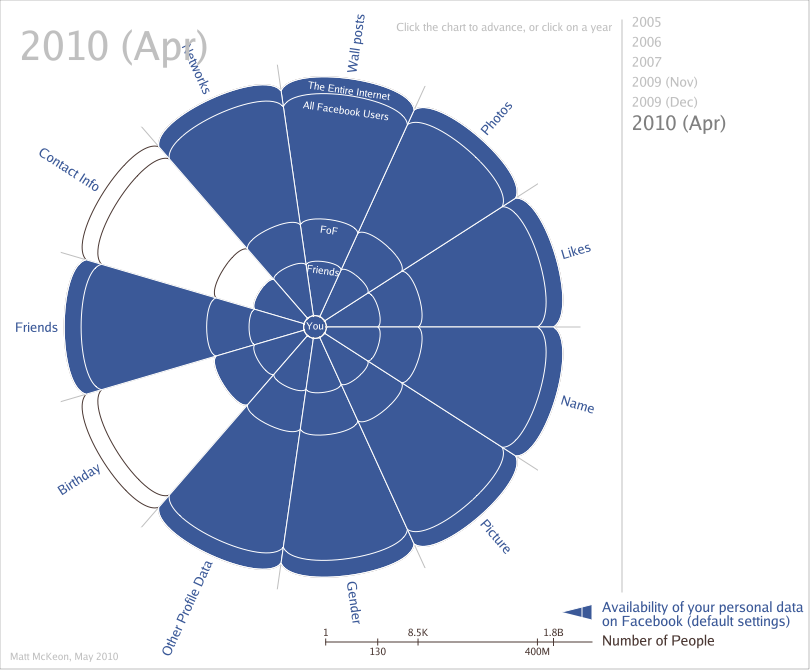This post is being made, not particularly as an attack on Facebook, as Myspace had the same sort of problems when it was the biggest player, and we believe any company which rises to such heights will be a risk to users if its power is not controlled. We believe that having all of the photo data collected by a single entity is dangerous and has worrying ramifications for user privacy. We use Facebook as an example here simply because it happens to be the largest social network at the current time.
Power tends to corrupt, and absolute power corrupts absolutely. Great men are almost always bad men.
– Lord Acton (1887)
In 2008, Facebook had access to over 10 billion user photos. We have no more recent figures but it seems likely that that number is significantly higher now. These photos can only be seen and interacted with by users of the social networking giant. Facebook have repeatedly changed the default privacy settings on their website as to encourage their users to share more publicly, often in a non-transparent way. There is a great graphic by Matt McKeon showing the evolution of Facebook privacy settings which you can view by clicking below.
In 2009, Facebook changes the terms of service, in particular the clause saying:
“You may remove your User Content from the Site at any time. If you choose to remove your User Content, the license granted above will automatically expire, however you acknowledge that the Company may retain archived copies of your User Content.”
was changed to remove the section about the license expiring, effectively giving Facebook an irrevocable license as soon as any content is uploaded. This policy change was unannounced and didn’t come to public attention until a blogger noticed it 2 weeks later.
This caused a backlash for Facebook and before long the terms were returned to the original state. Facebook soon opted to democratize the process of introducing new terms of service however the new terms have came in for a long of criticism also.
The main problem with this is that while the users can complain, it is very very difficult to give up your account on the biggest social network without giving up contact with your friends. We believe more open systems are required to allow people to interact across networks and allow people more power to stand up to oppressive terms of service. If there was a real alternative to Facebook, or even multiple real alternatives, then Facebook would not have such power.
We see the combination of taggr and etags as the first step towards lessening the requirement of having a Facebook account. Or at least allowing people to have an account but not necessarily having to store their photographs there if they don’t want to. This would hopefully make Facebook take notice and listen to their users needs more.

